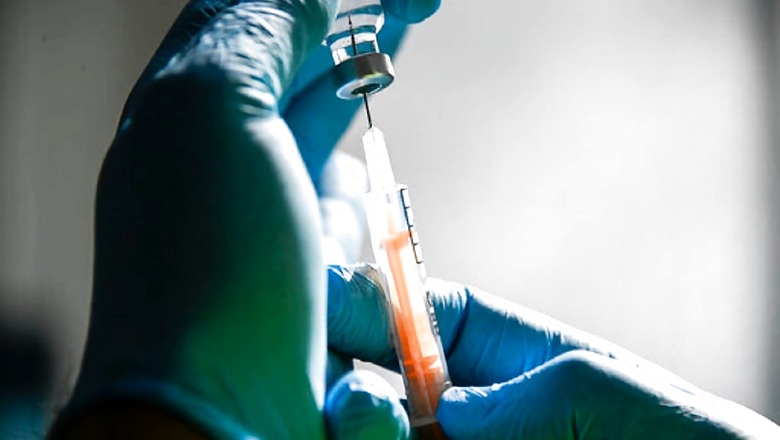
views
Russia has authorised a single-shot Sputnik Light Covid-19 jab for use, the Russian Direct Investment Fund (RDIF) that bankrolled the project said on Thursday, a move that could help doses penetrate further in countries like India with high infection rates while also potentially untangling to some extent challenges of logistics and vaccine hesitancy. The slimmed-down shot is the first component — recombinant human adenovirus serotype number 26 (rAd26) — of the Sputnik V vaccine that has been approved by over 60 countries, including India. The Sputnik vaccines are developed by Russia’s state-run Gamaleya research institute.
Efficacy
RDIF said in a statement that Sputnik Light “demonstrated 79.4 per cent efficacy” compared to 91.6 per cent for the two-shot Sputnik V, and that it has proven effective against all new strains of coronavirus. Its CEO Kirill Dmitriev told a news briefing that Sputnik Light could be a “key solution for many countries with viral surges” as it had resulted in “100% protection against severe infections”. The phase-3 clinical study on 7,000 people was conducted in multiple countries, including Russia, the UAE and Ghana. The interim results are expected in May.
“Sputnik V will be the core vaccine while Sputnik Light will be cheaper and more affordable, and ensure that more people can be vaccinated quickly. Sputnik Light will be registered in several countries by next week and we are in talks with regulators in several countries,” he said.
Who will make it
The RDIF CEO named India, South Korea and China among the countries that will produce Sputnik Light. “We have partnerships with more than 20 producers in 10 countries and they will make both versions of the vaccine,” he said.
“We hope that the 64 countries that have registered Sputnik V will also register Sputnik Light,” Dmitriev added.
Price and storage
The cost of Sputnik Light globally will be less than $10, according to RDIF, and it can be stored between 2 and 8 degrees Celsius.
Benefits of one-shot vaccines
RDIF and some experts say the potential uses of the single-shot vaccine is for the immunisation of a larger number of people in a shorter time frame, noting that it can be swiftly shipped to a country caught in the middle of a devastating outbreak. In the process, it can help a nation or region achieve herd immunity faster by doubling the vaccination rate. It can also help ease the amount of planning, coordination and resources required for inoculating a population twice, and reduce vaccine hesitancy, especially in a country like India.
The other one
So far, only Johnson and Johnson had introduced a single-dose Covid-19 vaccine. The multinational pharma company has applied to India’s drug regulator seeking permission to conduct phase-3 clinical trial of its one-shot vaccine in India.
According to a report, it is what’s known as a viral-vectored vaccine. A harmless adenovirus — from a large family of viruses, some of which cause common colds — has been engineered to carry the genetic code for the SARS-2 spike protein. Once the adenovirus enters cells, they use that code to make spike proteins. J&J employed this same approach to make an Ebola vaccine that has been authorised for use by the European Medicines Agency.
The J&J vaccine can be stored for up to three months at a temperature between 2 and 8 degrees Celsius. It was shown to be around 66% protective against moderate to severe Covid infections overall from 28 days after injection, and 85% protective against severe disease.
Vaccines that have approval in India
So far, two vaccines — Oxford/Astrazeneca vaccine Covishield manufactured by Serum Institute of India and indigenously developed Covaxin by Bharat Biotech — are being administered in India. Sputnik V — developed in Russia and to be imported and sold in India by Dr Reddy’s Laboratories — has also been approved by the Indian drug regulator. The country has already received 1.5 lakh doses of Sputnik V and another 1.5 lakh doses are expected in the next two days.
(With agency inputs)
Read all the Latest News, Breaking News and Coronavirus News here. Follow us on Facebook, Twitter and Telegram.




















Comments
0 comment